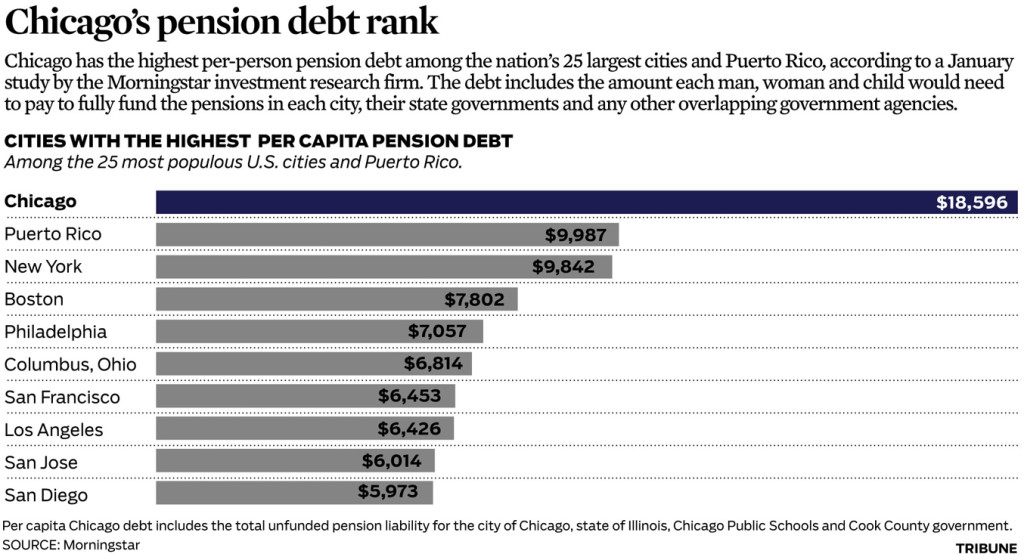In a groundbreaking decision, a judge ruled yesterday that the bankrupt city of Stockton, California could indeed cut worker pensions and halt payments to CalPERS. From the LA Times:
A federal bankruptcy judge dealt a serious blow to California’s public employee pension systems by ruling Wednesday that payments for future worker retirements can be reduced when a city declares bankruptcy — just like its other debts.
U.S. Bankruptcy Judge Christopher Klein ruled that bankruptcy law supersedes California pension laws that require cities to fund their workers’ future retirement checks.
“I’ve concluded the pension could be adjusted,” Klein said.
The potentially groundbreaking decision came after a large creditor of Stockton, which filed for bankruptcy protection two years ago, asked the judge to reduce the amount the city owes to the California Public Employees’ Retirement System, the nation’s largest public pension fund.
Until now, CalPERS had argued successfully in the bankruptcy cases of other California cities that amounts it requires for public worker pensions could not legally be reduced.
But just because Stockton can cut pensions doesn’t mean the city will. The city’s current bankruptcy plan doesn’t include pension cuts or the halting of payments to CalPERS. From the Sacramento Bee:
The practical effect of Klein’s ruling is unclear. It depends in large part on whether Klein will accept Stockton’s financial reorganization plan – a plan under which the city promises to keep making its annual $29 million pension payments in order to retain its relationship with CalPERS.
If Stockton gets Klein’s approval and can resolve its bankruptcy without slashing pensions, the impact of Klein’s ruling is blunted somewhat. But Klein won’t rule on the city’s plan until Oct. 30.
Because of Stockton’s pledge, CalPERS attorney Michael Gearin downplayed the decision and said it doesn’t force the city to cut its pension payments. “It doesn’t establish a precedent. Those were his comments about a hypothetical city” that wants to cut ties with the California Public Employees’ Retirement System, he said.
The city seems to have an interest in working to keep pensions intact. Staying with CalPERS, on the other hand, is being viewed as a reluctant necessity. From the Sacramento Bee:
City officials have said they have no choice but to stick with CalPERS. If it doesn’t pay the pension fund in full, default would occur, and the city would either have to make a one-time payment of $1.6 billion to keep pensions whole or let CalPERS slash benefits by 60 percent. The result would be a mass exodus of employees, the city said, creating an enormous setback just as the troubled city, saddled with poverty and a high crime rate, is starting to get back on its feet.
CalPERS released a statement immediately after the ruling expressing their disappointment with the decision and claimed that the ruling was “not legally binding”. From Reuters:
“This ruling is not legally binding on any of the parties in the Stockton case or as precedent in any other bankruptcy proceeding and is unnecessary to the decision on confirmation of the City of Stockton’s plan of adjustment,” Calpers spokeswoman Rosanna Westmoreland said in an emailed statement.
“CalPERS will reserve any further comment until such time as the court renders its final written decision. What’s important to keep in mind is what the City of Stockton stated in court today: that they can’t function as a city if their pensions are impaired.”










